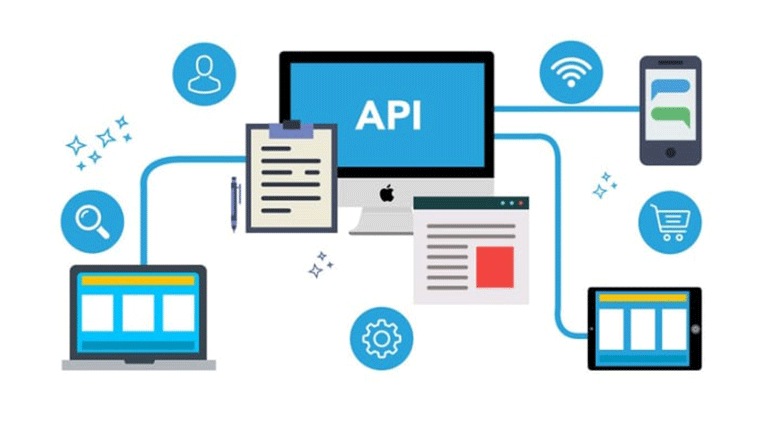
Thanks to API, two or more separate systems can work together and achieve results otherwise not within their reach. With this in mind, nowadays, a good API is no longer nice-to-have. It’s a must-have without which the app wouldn’t be properly developed and then used with engagement.

Connecting to an external service through an API is often the best and fastest solution to provide key functionality in an application. Often it is also the only solution. That is why proper implementation of API is so important. We integrate systems but also create dedicated APIs for web applications. We make connections between services reliable and secure
We create dedicated APIs for web services. We enable SaaS providers to integrate their services with clients’ services, but we also create API for internal use, so-called first-party API.
We provide integration services through API for web services. We provide full support and implementation and take care of proper performance and security of the connections between services
We create automated tests to verify the correctness and performance of APIs. We simulate the conditions under which the API will be used. We prepare a report and implement optimizations.
Payment API is one of the most popular ones. We integrate the payment API and make the payment process on the site more secure and reliable
We believe that good cooperation must be built on mutual trust. That’s why we strongly focus on open communication from the very beginning.
Thanks to API, two or more separate systems can work together and achieve results otherwise not within their reach. With this in mind, nowadays, a good API is no longer nice-to-have. It’s a must-have without which the app wouldn’t be properly developed and then used with engagement.
Each operating system, every website, or application can have its own API set. Usually, operating environments like Windows, Google Maps, Twitter, Facebook, or Amazon provide APIs to facilitate writing apps by third-parties but using their solutions. These public tools are called Open APIs, and you can access them without restrictions. There are more than 15 000 Open APIs out there!
Another type of API would be a Partner API, where specific permissions or licenses are needed to use them. Some APIs are also used internally to improve their product and services within certain organizations or companies. Others, such as composite APIs, combine different data and service APIs, running synchronously without a task request. All of them serve a crucial role in communication and inter-linking.
Another reason for its importance is how APIs facilitate interaction between apps, systems, data, and devices. Thanks to that, it’s possible to design a process of transmitting data and services to create connectivity that’s now a building block of modern software solutions. And that directly translates into valuable benefits.
As API implementation is a direct productivity boost for the team and a great time-saver, programmers can focus on the most important aspects, quickly delivering value to the business. Thus, it’s a common tool used to expand business capabilities. APIs allow organizations to grow quicker than ever before, reducing barriers and innovate faster. Who wouldn’t want that?
Firstly, API is enabling the abstraction of functionality between separate systems. What’s particularly important is that as long as the specification of what API is delivering from the service provider of the consuming app is not being altered, the changes to the infrastructure behind this service will not be noticed by the apps relying on that API. Hence, it’s a great way to decouple service from infrastructure, and therefore APIs introduce a great deal of flexibility in the way services are offered.
Thanks to API, it’s much easier to build a robust software solution, as the components are provided upfront. With independent functionalities not relying on their respective implementations, it’s possible to vary them without compromising each other. This translates into the increased speed of development and a possibility to reuse complex yet repetitive processes. The same is true with the integration of back-end data and applications, which, thanks to API implementation, is a piece of cake.
Another reason for its importance is how APIs facilitate interaction between apps, systems, data, and devices. Thanks to that, it’s possible to design a process of transmitting data and services to create connectivity that’s now a building block of modern software solutions. And that directly translates into valuable benefits.